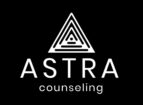Trauma can have a pervasive impact on a person’s life, affecting connections with others that are close by. But trauma can also have a tremendous impact on one’s relationship with one’s self. When we experience trauma, we often adapt to negative situations by “people-pleasing” and otherwise prioritizing everyone else over ourselves. This can lead to a felt sense of distrust with one’s self because we have essentially self-abandoned so many times that we no longer believe we are looking out for our own self-interest. This is understandable because, in practice, we have not been. When we don’t trust ourselves, it becomes very difficult to feel “safe” in your own body. This is the underlying context of PTSD.
If you cannot trust yourself, who can you trust? Learning to trust yourself after trauma is a lot like working out a muscle. It takes practice and repetition of things that might feel hard in order to rebuild esteem and trust. Pushing yourself to follow through on even small inconsequential tasks like making your bed, cleaning up the house, and drinking plenty of water will bring the rewards of self-esteem and self-trust because you are teaching yourself a new perspective that contradicts what the trauma says about you.
Following through on commitments to yourself is teaching yourself that you are trustworthy, safe, and worthy of the respect of yourself and others.
